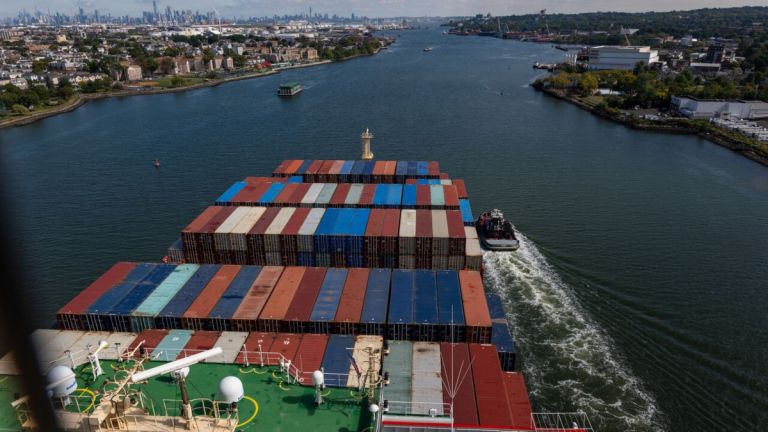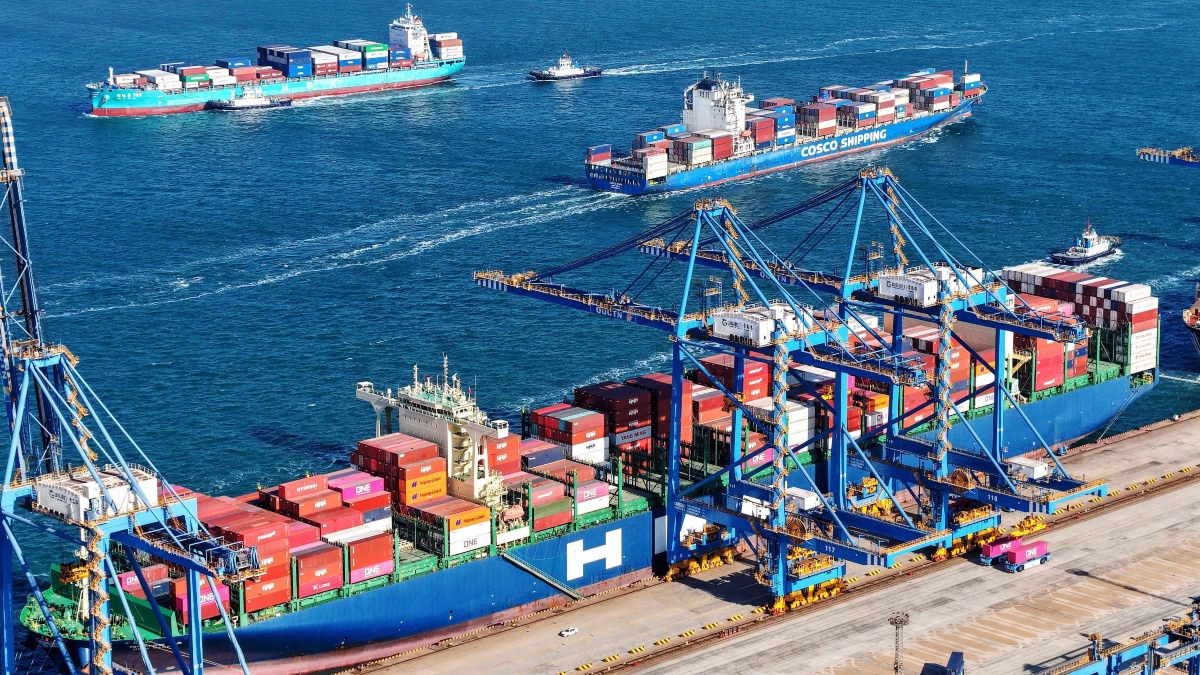Shipping: The Driving Force of the Greek Economy with a Contribution of up to 8% of GDP

Πηγή Φωτογραφίας: NEW YORK, NEW YORK - SEPTEMBER 30: A container ship departs the Port of Newark for the Atlantic Ocean on September 30, 2024 seen from New York City. A massive strike that could shut down ports across the East and Gulf coasts could begin at midnight as members of the International Longshoremen’s Association continue to make salary and other demands to the United States Maritime Alliance, which controls many of the ports across the country. (Photo by Spencer Platt/Getty Images)
With billions in investments and thousands of jobs, the Greek-owned fleet plays a strategic role for Greece. In a world of constant change, Greek shipping remains a stable pillar of the national economy, consistently demonstrating its pivotal importance through hard data and performance.
According to the annual report by the Union of Greek Shipowners (UGS), shipping is by far the most extrovertedsector of the Greek economy, with a total economic impact ranging between 7% and 8% of GDP each year.
Approximately 15% of annual real estate transactions in Greece are linked to shipping capital, while notable investments are also made in energy, tourism, media, and sports. Greek shipowners transfer not only capital, but also expertise and momentum into high value-added sectors, reinforcing the country’s productive fabric.

Employment and High-Value Jobs
The contribution of shipping goes beyond fiscal figures—it leaves a tangible footprint on employment. According to the report, about 160,000 direct and indirect jobs in Greece are tied to the maritime sector. This represents nearly 10% of the private-sector payroll, with these jobs marked by high specialization and significantly higher salaries.
The average wage in shipping companies is three times higher than the private-sector average, showcasing the sector’s ability to provide well-paid, sustainable employment opportunities.
Global Leader, National Asset
The UGS report positions Greek shipping not just as a national strength, but as a global benchmark for outward-looking investment, professionalism, and responsibility. With the largest fleet in the world under Greek ownership, Greece continues to lead the global maritime community.
In a time of heightened global uncertainty, Greek shipping proves it can serve as a catalyst for economic stability and long-term growth.
As UGS President Melina Travlos emphasizes:“Greek shipping is not only part of our history and tradition. It is a driving force for today and an investment in the future of Greece.”
Capital Flows and Strategic Investments
Based on official figures from the Bank of Greece, shipping-related inflows exceeded €150 billion over the past decade, placing the sector in a strategic position for public revenue, employment, and economic expansion.
A recent McKinsey & Company study (July 2024) further confirms that Greek shipping’s economic influence extends well beyond the sea. Leveraging their capital management expertise, Greek shipowners reinvest $1.4–$1.5 billion annually into other parts of the economy, boosting both growth and diversification.
Source: pagenews.gr
Διαβάστε όλες τις τελευταίες Ειδήσεις από την Ελλάδα και τον Κόσμο






Το σχόλιο σας